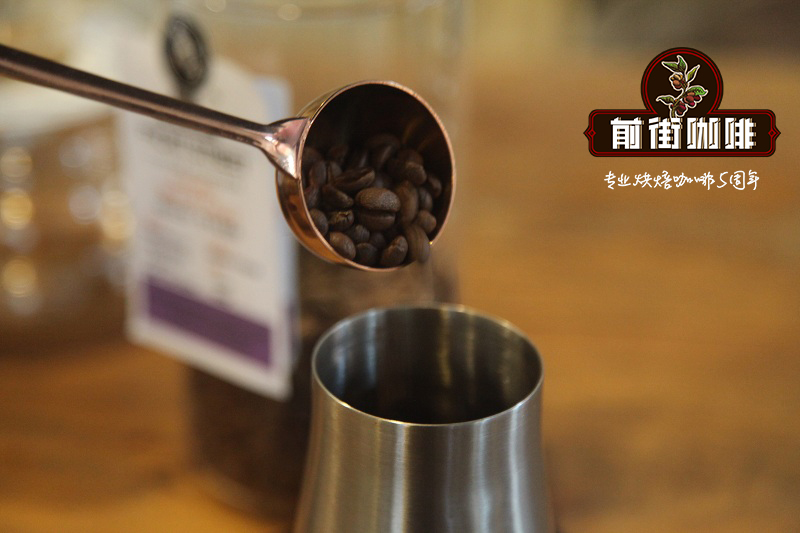How about organic coffee beans from Rwanda? Boutique coffee what's the flavor of the new darling Rwanda coffee?

Professional coffee knowledge exchange more coffee bean information please follow the coffee workshop (Wechat official account cafe_style)
Rwanda, known as the "country of a thousand hills," has a superior location, a plateau of 1400 meters and the nourishment of volcanic soil, giving excellent conditions for the production of coffee beans. Rwandan coffee beans are fully washed coffee beans with very high quality. Their coffee beans sell well and have a pure flavor. They are the new darling of "boutique coffee" as defined by the American Fine Coffee Association.
Rwanda (Rwanda) is located in Africa, and most of the coffee beans in the country are Arabica/Bourbon. Coffee beans are particularly attractive because of their smooth flavor, moderate acidity and sweet citrus quality with caramel. Over the past decade, thanks to the efforts of its own coffee growers and strong international support for cultivation, coupled with the help of the North American boutique coffee roasting industry, Rwanda has become a strong producer of boutique coffee and has blossomed and borne fruit.
The COOPAC Cooperative was founded in 2001 and currently has about 2200 members and about 50 washing facilities. The purpose of its establishment is to use excellent natural resources to produce high-quality coffee beans to supply the boutique coffee market and to provide its members with a reliable and sustainable income. We import COOPAC fair trade, organic, bourbon, Mayaquis coffee beans (FT ORGANIC BOURBON MAYAGUEZ COFFEE BEANS), producing areas from the western provinces of RWANDA, RUBAVU and RUTSIRO. Coffee beans grow in rich black volcanic soil, next to Lake Kivu (KIVU LAKE), at an altitude of 1500-1900 meters. These natural and superior conditions make the coffee beans mature slowly and grow into hard and compact beans. At the same time, coffee grows under shade trees, while COOPAC members only use organic fertilizers. Because of these two conditions, it helps coffee trees to grow nutritionally balanced fruits. COOPAC organic Mayaquis (Mayaguez) coffee beans are sent to the Kabirizi washing plant for treatment, fully washed and sun-dried in African scaffolding.
In addition to growing high-quality coffee, COOPAC is also committed to sustainable environmental and social development. The waste produced during coffee washing is reused as fertilizer and is not discarded into the lake. At the same time, shade trees are distributed to farmers to prevent soil erosion and to assist in the construction of schools, medical clinics and roads and bridges. There is also the distribution of cows and goats to the most productive farmers as another source of income. COOPAC also provides agricultural consultants to farmers and educates growers on the latest production methods.
Today, the COOPAC Cooperative in Rwanda is internationally recognized as producing exquisite and award-winning coffee beans.
Product name: organic Rwandan Coffee Raw Bean Manor: COOPAC region: Rubavu and Rutsiro height in the western provinces of Rwanda: 1500-1900 m varieties: Bourbon Mayaguez Certification: fair trade, organic treatment: washing, scaffolding sun drying harvest: March to August
END
Important Notice :
前街咖啡 FrontStreet Coffee has moved to new addredd:
FrontStreet Coffee Address: 315,Donghua East Road,GuangZhou
Tel:020 38364473
- Prev

Introduction to the cultivation of coffee varieties in Rwanda characteristic varieties and treatment methods of coffee beans in Rwanda
Professional coffee knowledge exchange more information about coffee beans Please follow the coffee workshop (Wechat official account cafe_style) Bourbon varieties account for more than 90% of Rwanda's production. A small number of farmers grow bourbon variants BM-139 and Jackson. There are more mountains in the south and west, and water washing stations are also more famous. Such as Gitesi, Huye Mountain, and Mibirizi
- Next

Development History of Rwanda Coffee Industry Starbucks Rwanda Shuli Coffee beans characteristic Flavor
Professional coffee knowledge exchange more coffee bean information please follow the coffee workshop (Wechat official account cafe_style) the world's top 10 coffee producing countries, mostly concentrated in South America, Southeast Asia and Africa, especially Africa as the hometown of coffee, has been hoping to expand the international market, in which the small Central African country of Rwanda, due to its small land, planting area can not win by quantity, 15 years
Related
- Does Rose Summer choose Blue, Green or Red? Detailed explanation of Rose Summer Coffee plots and Classification in Panamanian Jade Manor
- What is the difference between the origin, producing area, processing plant, cooperative and manor of coffee beans?
- How fine does the espresso powder fit? how to grind the espresso?
- Sca coffee roasting degree color card coffee roasting degree 8 roasting color values what do you mean?
- The practice of lattes: how to make lattes at home
- Introduction to Indonesian Fine Coffee beans-- Java Coffee producing area of Indonesian Arabica Coffee
- How much will the flavor of light and medium roasted rose summer be expressed? What baking level is rose summer suitable for?
- Introduction to the characteristics of washing, sun-drying or wet-planing coffee commonly used in Mantenin, Indonesia
- Price characteristics of Arabica Coffee Bean Starbucks introduction to Manning Coffee Bean Taste producing area Variety Manor
- What is the authentic Yega flavor? What are the flavor characteristics of the really excellent Yejasuffi coffee beans?

